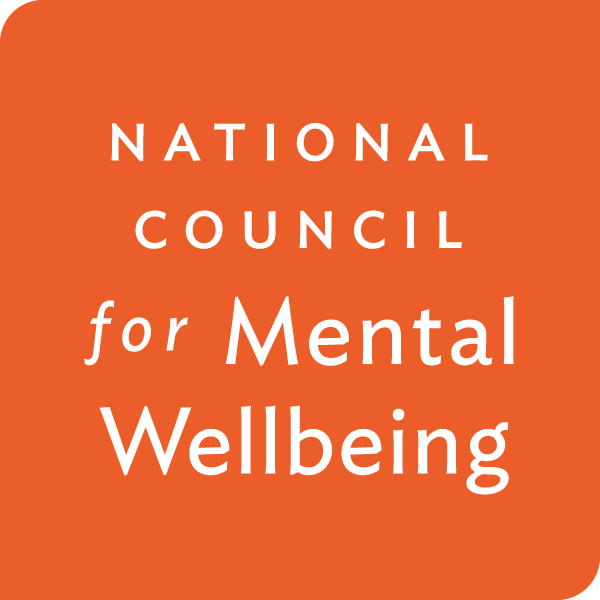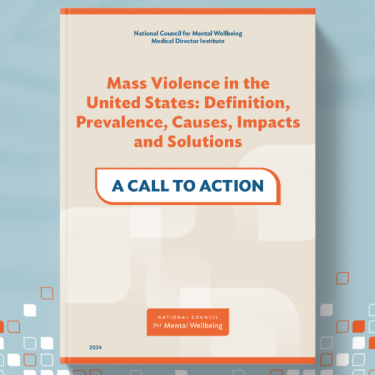WASHINGTON, DC (June 5, 2024) — Leaders from hundreds of organizations that provide mental health and substance use treatment and care will urge lawmakers this week (June 5-6) to take swift action on a handful of crucial bills to improve access to care and bolster a workforce in desperate need of resources during the National Council for Mental Wellbeing’s 20th Hill Day.
“We’ve made enormous strides toward expanding access to comprehensive mental health and substance use treatment and care, but our work remains incomplete,” National Council President and CEO Chuck Ingoglia said. “Together, our members and advocacy partner organizations will be as vocal as ever about the need to prioritize increasing and supporting the workforce to keep up with demand for care and ensuring that everyone can access mental health and substance use treatment when and where they need it.”
National Council members will be joined by allies from other organizations supporting mental health and substance use treatment and care to advocate on behalf of legislation to expand Certified Community Behavioral Health Clinics (CCBHCs), support comprehensive mental health and substance use treatment and care, overcome the workforce shortage, improve crisis care and support the 988 Suicide & Crisis Lifeline.
During Hill Day, National Council members will urge for passage of:
- Ensuring Excellence in Mental Health Act (H.R. 8543/S.2993)
- Ensures sustainability by building upon the previous bipartisan actions of Congress to expand and enhance the CCBHC model.
- Improving Access to Mental Health Act of 2023 (H.R.1638/S.838)
- Increases the Medicare reimbursement rate for certified social workers (CSWs) from 75% to 85% of the physician fee schedule.
- Promoting Effective and Empowering Recovery Services (PEERS) Act of 2023 (H.R.6748/S.3498)
- Authorizes peer support services to be reimbursed by Medicare in four settings: CCBHCs, community mental health centers, federally qualified health centers and rural health clinics.
- Mental Health Professionals Workforce Shortage Loan Repayment Act of 2023 (H.R.4933/S.462)
- Reauthorizes, through FY2032, and expands the Substance Use Disorder Treatment and Recovery Loan Repayment Program (STAR LRP) to include mental health treatment providers.
- Due Process Continuity of Care Act (H.R.3074/S.971)
- Amends the Medicaid Inmate Exclusion Policy to allow access to Medicaid coverage for pretrial detainees.
- Reentry Act of 2023 (H.R.2400/S.1165)
- Restarts benefits for Medicaid-eligible incarcerated individuals 30 days pre-release and makes it easier for states to provide effective addiction treatment and services, allowing for a reduced risk of overdose deaths post-release.
- SUPPORT Act (H.R.4531/S.3393)
- Reauthorizes key programs that support the substance use disorder workforce and strengthen access to treatment and recovery services across a continuum of support.
- Continuity in Necessary Evaluative Crisis Treatment (CONNECT) Act of 2024 (H.R. 6928)
- Authorizes grants to eligible crisis centers to improve access to critical and lifesaving follow-up support for people who are receiving suicide prevention and crisis intervention services.
- Local 9-8-8 Response Act (H.R. 4974/S. 3444)
- Proposes routing calls to the 988 Suicide & Crisis Lifeline based on the caller’s geographic location rather than using their area code, ensuring a quicker response from mental health professionals.
“No one is immune from a mental health or substance use challenge. We must connect more Americans to care, strengthen the capacity to provide treatment, overcome the workforce shortage and expand access to evidence-based prevention, harm reduction, treatment and recovery,” Ingoglia said. “So, we will continue working with lawmakers on both sides of the aisle to ensure substance use and mental health programs receive funding and do everything we can to make mental wellbeing, including recovery from substance use challenges, a reality for everyone.”
The National Council’s Hill Day coincides with publication this week of the 2024 CCBHC Impact Report.
About The National Council
Founded in 1969, the National Council for Mental Wellbeing is a membership organization that drives policy and social change on behalf of over 3,400 mental health and substance use treatment organizations and the more than 10 million children, adults and families they serve. We advocate for policies to ensure equitable access to high-quality services. We build the capacity of mental health and substance use treatment organizations. And we promote greater understanding of mental wellbeing as a core component of comprehensive health and health care. Through our Mental Health First Aid (MHFA) program, we have trained more than 4 million people in the U.S. to identify, understand and respond to signs and symptoms of mental health and substance use challenges.
Media Contact
Sophia Majlessi
Media@TheNationalCouncil.org
202-621-1631




